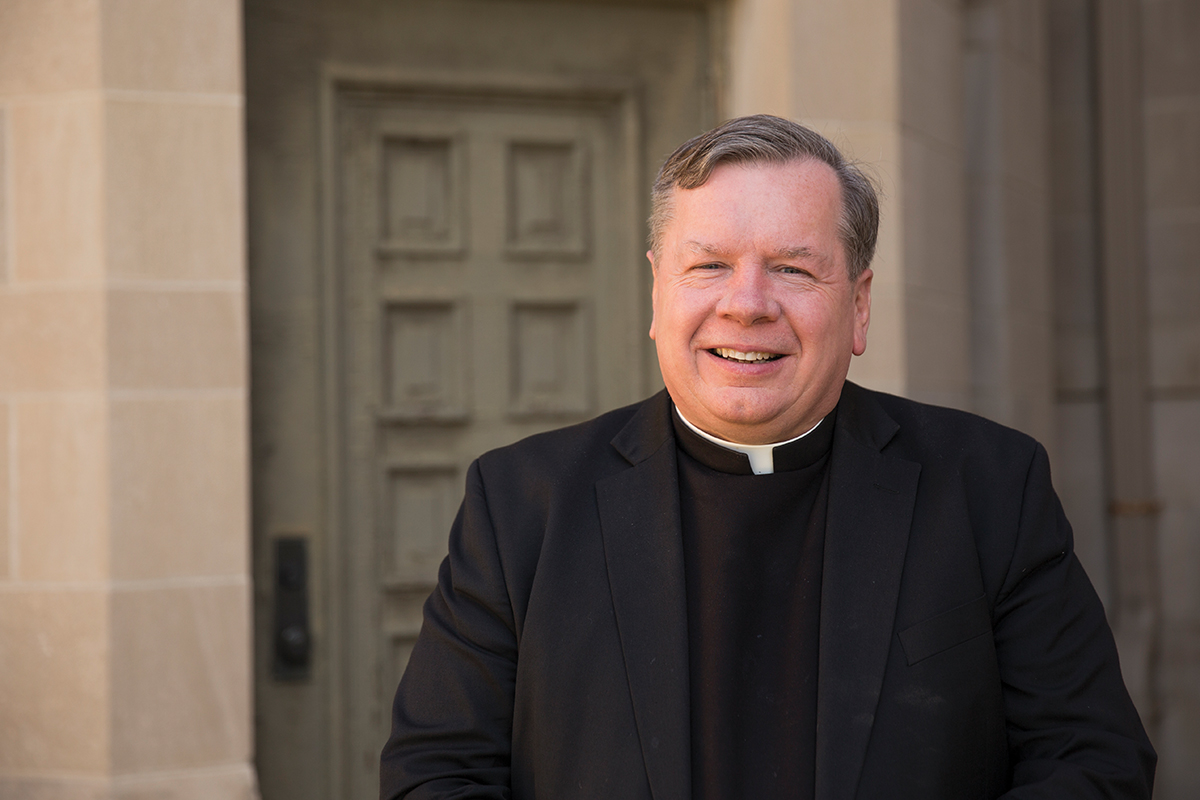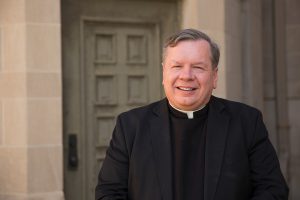
By Monsignor Charles Mangan

Who is the G.O.A.T.? This question seems to be asked with increasing frequency in discussions about athletes, banjo players and poets.
G.O.A.T. is the acronym for “Greatest of All Time.” A person with even a little knowledge about who that person is in any field of endeavor likely demonstrates an appreciation for skill and achievement.
Who the G.O.A.T. is among the saints in heaven is known only to God and really matters little to us. What we know is that all in paradise are there thanks to the Lord’s unceasing mercy and their cooperation with His grace.
We gladly venerate all the saints in heaven. These men and women, boys and girls are now “in glory, contemplating ‘in full light, God Himself triune and one, exactly as He is’” (Catechism of the Catholic Church, 954). These are the disciples of Christ who have already inherited the sweet, unending reward for their labors. Some have been canonized, others have not. But each is part of the Church Triumphant that is radiant near the throne of the Most Blessed Trinity.
There is no rivalry in paradise. There is no division into teams for a celestial All-Star Game. There are no rookies of the year, signing bonuses, playoffs or championship trophies. Each saint delights in the sanctity of his brothers and sisters and looks forward to the day when many more will enter heaven.
The secret of the saints is they accepted the burdens of fidelity not for their own prestige and glory but for God’s. They learned the lesson that to follow the Lord Jesus Christ from Bethlehem to Cana to Calvary to the empty tomb to the Mount of Olives is not a self-congratulatory exercise but rather a heroic self-surrender to the wise will of the Father as the Good Shepherd Himself did.
We confidently address the saints in our joys and sorrows. Close to God, the saints understand well our needs. They experienced many of the same.
A publication entitled, “Saint Worship?” by Catholic Answers offers a useful insight into the Church’s encouragement to honor the saints in heaven. “The most important form of honoring the saints, to which all the other forms are related, is the imitation of them in their relationship with God. Paul wrote extensively about the importance of spiritual imitation. He stated: ‘I urge you, then, be imitators of me. Therefore I sent to you Timothy, my beloved and faithful child in the Lord, to remind you of my ways in Christ, as I teach them everywhere in every church’ (1 Corinthians 4:16–17). The author of the book of Hebrews also stresses the importance of imitating true spiritual leaders: ‘Remember your leaders, those who spoke to you the word of God; consider the outcome of their life, and imitate their faith’ (Hebrews 13:7).”
Even I can imitate the saints?
God’s call to spiritual perfection has been sounded ever since Jesus began His public ministry. The invitation is extended to all though, sadly, it is often not heard because of the clanging noise provided by various enticements that the world considers as more essential than holiness—wealth and power being chief among them. That is not to claim that money and authority do not have their place. But these do not outstrip sanctity.
No one can look into another’s soul and judge his or her relationship with the Lord. Those whom we would quickly reject as unworthy may one day become some of the loftiest stars in the heavenly sky.
The Litany of Loreto acknowledges the ever-virgin Mary as the Queen of All Saints. She is the model and pattern of virtue. She keeps close to her Immaculate Heart those who love her Son and seek to follow Him.
The summons to sanctity comes from God. Each of us has received it through baptism. Now, it must be realized. We can join the saints in heaven not for a contest but for an eternity of giving thanks to the Creator Who made us and calls us to Himself.


